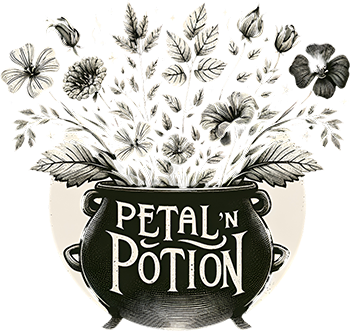P a r s l e y
Parsley (Petroselinum crispum) is a biennial herb native to the Mediterranean region.
Widely used in culinary dishes for its fresh, bright flavor and vibrant green color, parsley also boasts numerous health benefits.
Benefits
- Antioxidant Properties: Provides antioxidants that protect cells from oxidative stress and damage.
- Anti-Inflammatory: Reduces inflammation, helping with conditions such as arthritis and inflammatory diseases.
- Digestive Health: Aids digestion, reduces bloating, and alleviates symptoms of indigestion.
- Diuretic Effects: Promotes kidney health by increasing urine production and reducing fluid retention.
- Bone Health: Rich in vitamin K, which is essential for bone health and calcium absorption.
- Heart Health: Supports cardiovascular health by reducing cholesterol levels and improving lipid profiles.
- Immune Support: Enhances immune function and helps the body fight off infections.
Active Compounds
- Flavonoids: Provide antioxidant and anti-inflammatory benefits.
- Vitamins and Minerals: Rich in vitamins A, C, and K, as well as minerals like iron, calcium, magnesium, and potassium.
- Myristicin: Exhibits antioxidant and potential anti-cancer properties.
- Apigenin: Offers anti-inflammatory and antioxidant effects.
- Chlorophyll: Provides detoxifying properties and supports overall wellness.
Who Should Avoid This
- Individuals with Allergies: Those allergic to parsley or other plants in the Apiaceae family (such as carrots, celery, and cilantro) should avoid parsley.
- People Prone to Kidney Stones: Should limit consumption due to oxalate content.
- Pregnant and Nursing Women: Due to potential uterotonic effects, it is advisable to consult a healthcare provider before use.
- Individuals on Medication: Particularly those taking blood thinners or diuretics should consult a healthcare provider to avoid interactions.
Warnings
While parsley offers numerous health benefits, some precautions and potential side effects should be considered:
- Allergic Reactions: Can cause allergic reactions in some individuals, particularly those sensitive to plants in the Apiaceae family.
- Kidney Stones: Contains oxalates, which can contribute to kidney stone formation in susceptible individuals.
- Pregnancy and Breastfeeding: High doses should be avoided during pregnancy due to its potential uterotonic effects; consult a healthcare provider before use.
- Interaction with Medications: May interact with certain medications, including blood thinners and diuretics.
Usage Guidelines
Parsley can be used both short-term and long-term, depending on the condition being treated. For acute issues such as digestive discomfort or fluid retention, it is typically used until symptoms improve. For ongoing benefits such as antioxidant protection or bone health, longer-term use may be appropriate but always under the guidance of a healthcare professional. Always consult with a healthcare provider to determine the correct dosage and duration for your specific needs.
